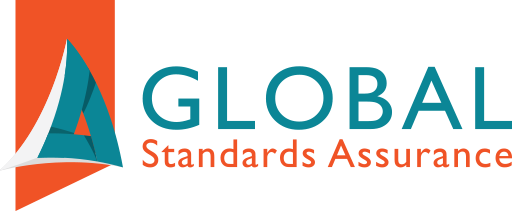Global Standards Assurance (GSA)
Join the league of elite
businesses with
ISO 9001 certification
- a badge of excellence.
WHAT IS ISO 9001
ISO 9001 is a globally recognized quality management system that has a rich history spanning several decades. The system was first introduced in 1987 by the International Organization for Standardization (ISO) to provide a consistent framework for organizations to manage and improve their quality processes.
Over the years, ISO 9001 has evolved and undergone revisions to stay relevant and responsive to changing business needs and advancements in quality management practices. The most recent revision of ISO 9001 was released in 2015, emphasizing a risk-based approach, customer focus, leadership involvement, and continual improvement.
Today, ISO 9001 is implemented by organizations of all sizes and sectors worldwide, enabling them to enhance their quality performance, gain a competitive edge, and meet the ever-increasing expectations of customers and stakeholders.

WHAT IS ISO 9001:2015 CERTIFICATION?
ISO 9001:2015 certification is an internationally recognized standard that confirms an organization has implemented a robust quality management system (QMS). This certification signifies that the organization has established effective processes, controls, and procedures to consistently deliver products and services that meet customer requirements and comply with applicable regulations.
ISO 9001:2015 certification demonstrates the organization’s commitment to quality, customer satisfaction, continual improvement, and a strong focus on delivering value. It enhances the organization’s credibility, competitiveness, and ability to attract and retain customers by showcasing its dedication to quality management and adherence to internationally recognized standards.
BENEFITS OF ISO 9001:2015 CERTIFICATION
Enhanced Customer Trust
ISO 9001 certification demonstrates a commitment to quality and customer satisfaction, instilling trust in customers and strengthening relationships.
Improved Operational Efficiency
It helps streamline processes, reduce waste, and enhance resource utilization, leading to improved productivity and cost savings.
Increased Market Opportunities
ISO 9001 certification opens doors to new markets, contracts, and tenders that require or prefer certified suppliers, expanding business opportunities.
Better Risk Management
It promotes systematic risk assessment and mitigation, helping organizations proactively identify and address potential risks, ensuring business continuity.
Continuous Improvement
ISO 9001 fosters a culture of continuous improvement, enabling businesses to identify areas for enhancement and drive ongoing growth and innovation.
ISO 9001:2015 certification process

Develop and Implement QMS
Establish a quality management system that aligns with ISO 9001:2015 requirements.

Conduct Internal Audits
Perform regular audits to assess QMS effectiveness and compliance.

Management Review
Periodically review QMS performance and suitability at the management level.

Corrective and Preventive Actions
Address non-conformities and implement corrective actions to prevent recurrence.

External Certification Audit
Undergo an audit by an accredited certification body to verify compliance and achieve ISO 9001:2015 certification.

Certification Maintenance
Maintain the QMS and undergo surveillance audits to ensure ongoing compliance and improvement.
HOW WE CAN HELP
Assessment:
Evaluate the business’s current practices against ISO 9001 requirements to identify gaps.
Implementation:
Develop and implement a tailored Quality Management System (QMS) aligned with ISO 9001.
Certification:
Conduct audits to assess compliance and issue ISO 9001 certification if requirements are met. Provide ongoing support to ensure maintenance of the QMS.
WHY GLOBAL STANDARDS ASSURANCE ( GSA)
Tailored Solutions
GSA provides ISO 9001 certification services specifically designed for small businesses, offering flexible and cost-effective solutions.
Competitive Pricing
GSA offers highly competitive pricing for ISO 9001 certification, ensuring small businesses can save money while obtaining the prestigious certification.
Expert Guidance
GSA's experienced professionals provide personalized support throughout the certification process, helping develop and implement a robust Quality Management System.
Faster Certification
GSA prioritizes efficiency without compromising thoroughness, expediting the certification process for small businesses.
Market Advantage
ISO 9001 certification from GSA enhances credibility, reputation, and market access, opening doors to new business opportunities and government contracts.
FREQUENTLY ASKED QUESTIONS
The ISO 9001:2015 certification is widely recognized and considered the most up-to-date and comprehensive version of the ISO 9001 standard. It is recommended to pursue this certification as it reflects the latest best practices in quality management systems.
To get ISO 9001 certified in the UK, you need to follow these steps:
Develop and implement a Quality Management System (QMS) that meets the requirements of ISO 9001:2015.
Conduct internal audits to assess compliance and identify areas for improvement.
Engage an accredited certification body to perform an external audit and evaluate your QMS.
Address any non-conformities identified during the audit and demonstrate continuous improvement.
Upon successful completion, the certification body will issue your ISO 9001 certificate.
ISO 9001 accreditation refers to the process of having a certification body formally recognize and accredit your organization’s QMS as compliant with ISO 9001 standards. To obtain ISO 9001 accreditation, you must engage an accredited certification body to conduct a comprehensive audit of your QMS and verify its compliance with the ISO 9001 requirements. If your organization successfully meets the criteria, the certification body will grant you ISO 9001 accreditation.
The cost of ISO 9001 QMS certification can vary depending on several factors, such as the size of your organization, the complexity of your processes, the chosen certification body, and any additional services required. It is recommended to request quotes from different certification bodies to compare costs and understand the specific pricing structure and services included.
The time required to complete ISO 9001 certification depends on various factors, including the size and complexity of your organization, the readiness of your existing processes, and the resources allocated to the certification project. Typically, the certification process can take several months but it could complete in a month as well. It involves developing and implementing a QMS, conducting internal audits, addressing non-conformities, and undergoing an external certification audit. The timeline can vary and should be discussed with your chosen certification body.
ISO certifications, including ISO 9001, can offer numerous benefits for organizations. They enhance credibility, demonstrate a commitment to quality, improve operational efficiency, increase market opportunities, and enhance customer trust. ISO certifications are often required or preferred by clients, partners, and government agencies when selecting suppliers or business partners. However, the decision to pursue ISO certification should be based on the specific needs and goals of your organization. It is essential to evaluate the potential benefits and costs associated with certification to determine if it aligns with your business objectives.


